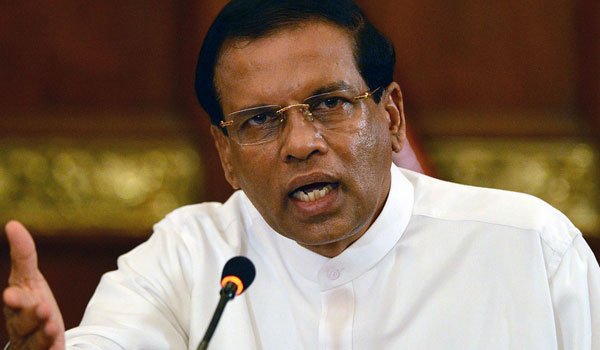The country’s economy has grown an average of 7.4 percent per year in that time, fueled in part by visitors to its beach resorts. Sri Lanka welcomed more than 1.5 million tourists last year, triple what it drew in 2009 when the war ended.
Polls are scheduled to open at 7 a.m. local time and close at 4 p.m., with results probably emerging early on Tuesday. The main fight is between the United National Party (UNP) backing President Maithripala Sirisena, and former leader Mahinda Rajapaksa’s Sri Lanka Freedom Party (SLFP).
Here are answers to some frequently asked questions.
How does voting work?
The 225-person parliament comprises 196 lawmakers elected based on proportional representation in multi-member constituencies. The other 29 come from national lists that are divided up based on the number of votes in the entire country.
Who controls parliament now?
Rajapaksa’s SLFP-led alliance won about two-thirds of seats in the 2010 election. Those lawmakers split when Sirisena defected from Rajapaksa’s camp and won the presidency this year. Sirisena then appointed Ranil Wickremesinghe, whose UNP controls about a quarter of parliamentary seats, as prime minister.
Who’s going to win?
While Sri Lanka has few reliable opinion polls, many analysts see Wickremesinghe’s UNP as the favorite. An island-wide survey by the Colombo-based Centre for Policy Alternatives this month showed about 40 percent backing Wickremesinghe for prime minister, with 28 percent supporting Rajapaksa.
How can Rajapaksa become prime minister?
Sirisena alone makes that decision, and it looks very unlikely. In a letter to Rajapaksa last week, Sirisena wrote that he would appoint anyone but the former leader as prime minister.
How will investors react?
Sri Lanka’s benchmark Colombo All-Share Index is among the top 10 best performers globally over the past decade when measured in total U.S. dollar returns. It’s up 2.3 percent so far this year. Analysts see a win for Wickremesinghe bringing stability, with a victory for Rajapaksa leading to policy clashes.
What do the main coalitions stand for?
Wickremesinghe’s party wants to end corruption, ensure religious freedom for minorities and undertake pro-market reforms to make the island more competitive. Rajapaksa’s party says it can bolster growth by restarting stalled investment projects.
What does the election mean for global superpowers?
Sirisena has shifted Sri Lanka toward the U.S., European Union and India since taking power. Rajapaksa moved the country closer to China during his ten years as president.
Should I cancel my trip to Sri Lanka?
Sri Lanka’s beach resorts have stayed peaceful even during the war, with only rare incidents of violent crime. That remained the case throughout the campaign. The U.S. advises its citizens to avoid political rallies and demonstrations, most of which are only in major cities.
(bloomberg.com)






